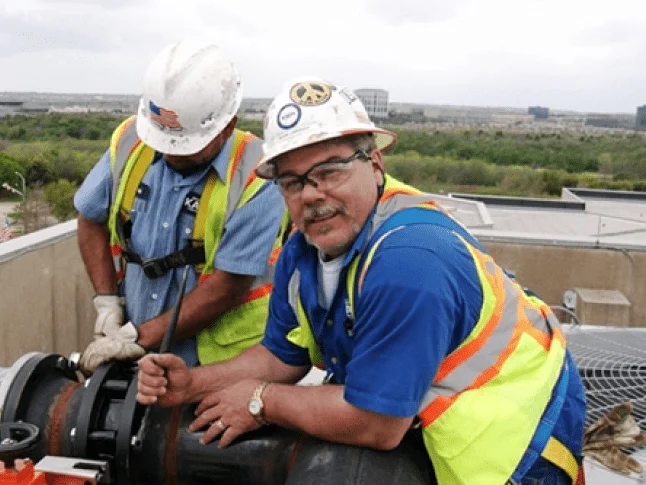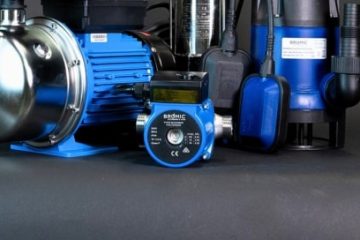Industrial settings are highly demanding environments that require specialized knowledge and expertise to manage complex mechanical systems. From large-scale HVAC systems to industrial refrigeration and process piping, these systems are essential to the smooth operation of factories, warehouses, and production facilities. Without proper design, installation, and maintenance, these systems can experience failures that lead to costly downtime, safety hazards, and inefficiencies.
This is where mechanical contractors come in. Mechanical contractors play a critical role in ensuring that the mechanical systems in industrial settings are designed, installed, and maintained to operate efficiently and reliably.
1. Designing and Installing HVAC Systems for Large-Scale Operations
Industrial HVAC systems are far more complex than those found in residential or even commercial settings. Factories, warehouses, and industrial plants often require specialized heating, cooling, and ventilation systems that are capable of handling large spaces and specific environmental conditions. In industrial facilities, proper HVAC design is critical for maintaining worker safety, protecting equipment, and ensuring that products are manufactured and stored in the right conditions.
Mechanical contractors are responsible for designing HVAC systems that meet the unique needs of industrial operations. This involves assessing the building’s size, layout, and processes to determine the right system specifications. For example, facilities that deal with chemicals, fumes, or high heat production may need customized ventilation systems to ensure clean air quality and temperature control.
After the design phase, mechanical contractors handle the complex installation process, ensuring that all ductwork, fans, and heating and cooling units are correctly positioned and connected. Proper installation is crucial because any errors can lead to inefficiencies, higher energy costs, and potential safety risks.
2. Managing Industrial Refrigeration Systems
For industries that rely on cold storage, such as food and beverage production, pharmaceuticals, and chemical manufacturing, refrigeration systems are a critical part of operations. These systems need to run continuously and reliably to ensure product safety and compliance with health and safety regulations.
Mechanical contractors specializing in industrial refrigeration are tasked with designing systems that maintain precise temperature control while minimizing energy consumption. The size and scope of industrial refrigeration systems make them more complicated than the systems used in commercial buildings or restaurants. These large-scale systems require advanced knowledge of cooling technologies and regulations regarding refrigerants and energy efficiency.
Once installed, mechanical contractors also provide regular maintenance to prevent equipment failure, which can be particularly costly in industries where a refrigeration system breakdown can result in the loss of perishable goods. With routine maintenance, including checking refrigerant levels, inspecting compressors, and cleaning condenser coils, mechanical contractors ensure that refrigeration systems remain efficient and reliable.
3. Ensuring Proper Ventilation and Airflow
Ventilation is another crucial aspect of industrial operations, particularly in facilities where dust, fumes, or hazardous gases are generated. Poor ventilation can lead to unsafe working conditions, equipment malfunctions, and even regulatory violations. Mechanical contractors play a key role in ensuring that industrial buildings have adequate ventilation systems to remove contaminants and maintain safe air quality.
In industries such as manufacturing, mining, and chemical processing, mechanical contractors design ventilation systems that efficiently remove harmful particulates and gases while providing fresh air for workers. They may also install air filtration systems that prevent contaminants from circulating in the environment, improving both worker safety and equipment longevity.
Proper ventilation also helps regulate temperatures in industrial facilities where equipment and machinery generate significant amounts of heat. Mechanical contractors ensure that ventilation systems are optimized to manage both air quality and temperature, keeping the environment safe and comfortable.
Conclusion
In industrial settings, mechanical contractors play a vital role in ensuring that complex systems—such as HVAC, refrigeration, ventilation, and process piping—operate efficiently and safely. By providing expert design, installation, and maintenance services, they help industrial facilities maintain peak performance, reduce energy costs, and avoid costly downtime.
From managing large-scale HVAC installations to maintaining intricate piping systems, mechanical contractors are an essential part of any industrial operation. By working with skilled professionals, businesses can ensure that their mechanical systems meet industry standards, operate efficiently, and remain safe for both workers and the environment.
Explore more: Managed IT Services for Startups: How to Get Enterprise-Level IT Without Breaking the Bank
FAQs
1. How often should industrial mechanical systems be maintained?
Routine maintenance is typically performed on a quarterly or bi-annual basis, depending on the system. However, certain high-demand systems, like HVAC or refrigeration, may require more frequent inspections to ensure optimal performance.
2. Can mechanical contractors help with energy efficiency in industrial settings?
Yes, mechanical contractors can optimize systems for energy efficiency by upgrading equipment, installing smart controls, and conducting energy audits to identify areas for improvement.
3. What happens if a mechanical system fails during operation?
Mechanical contractors offer emergency repair services to quickly diagnose and fix system failures, minimizing downtime and ensuring that operations can resume safely and efficiently.




